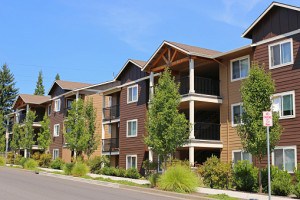Condos, Causation and Insurance Claims
 When you purchase a unit in a condominium, you own the interior of that unit; the exterior (or from the studs-out, typically) is managed by a homeowners’ association (HOA). As part of your contract, you will pay HOA fees that go towards the upkeep of the land and outside structure. Part of those fees pay for an insurance policy that covers the complex as a whole. Because of this, condo residents and HOAs may face certain challenges when it comes to making an insurance claim, especially if there is a dispute regarding coverage or causation.
When you purchase a unit in a condominium, you own the interior of that unit; the exterior (or from the studs-out, typically) is managed by a homeowners’ association (HOA). As part of your contract, you will pay HOA fees that go towards the upkeep of the land and outside structure. Part of those fees pay for an insurance policy that covers the complex as a whole. Because of this, condo residents and HOAs may face certain challenges when it comes to making an insurance claim, especially if there is a dispute regarding coverage or causation.
Proving causation
The first hurdle most HOAs and policyholders face involves causation – i.e., what event led to the problem associated with the claim, and is it covered under the policy. For example, let us say that after a heavy rainstorm, residents notice that the roof now leaks, causing damage to their ceilings. The insurance company says that the leaks are the result of an older roof, and were bound to happen because the HOA was not maintaining them properly. The HOA says that there had been no leak before the storm. At this point, an attorney representing the HOA will attempt to prove that the storm was the cause of the damage, and an attorney representing the insurance company will attempt to prove that it was lack of maintenance, or wear and tear. For HOA’s, this dispute is near commonplace with the seemingly unending barrage of hail and wind storms that have barraged the South in recent years. The lawyers at McWherter Scott & Bobbitt have handled dozens of these claims and would be pleased to assist.
HOA claim or condo-owner claim?
For condominium unit owners, this is where the second hurdle comes in. A leaky ceiling can cause damage to the electrical wiring inside the condo unit, but it can also damage electronics that are plugged into that electrical circuit, or to furniture or home décor. The HOA insurance policy will likely not cover your personal effects, which means you need to make a separate claim for the items that were damaged due to the leak. If your HOA offered an all-in insurance policy, and you did not purchase any additional insurance, then the HOA’s claim might cover the damage to your items under their policy. However, another separate claims may need to be brought against the insurance company to ensure that you receive compensation for your damaged items.
The smart move for condo owners is to always purchase their own individual insurance policy, just in case. You can opt for umbrella coverage or a policy that covers only what you own, but additional coverage could be the difference between recouping your losses and taking one. If you have questions about your policy, or are facing a dispute with your insurer over your claim, McWherter Scott & Bobbitt can help. Please contact Brandon McWherter, Clint Scott or Jonathan Bobbitt to reserve a consultation with a skilled Tennessee insurance disputes attorney at one of our offices in Nashville, Chattanooga, Memphis, and Jackson.

Whether in a courtroom or a duck blind, Clint Scott pursues excellence in all of his endeavors. With a demeanor that’s part Grizzly Bear and part Teddy Bear, he is not the typical lawyer, but then again the Firm isn’t a typical law firm. Learn More
